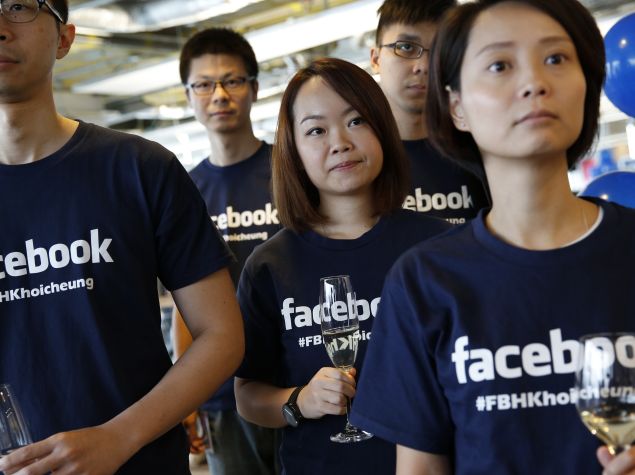- Home
- Social networking
- Social networking News
- Facebook Posts Related to Alcohol May Promote Under Age Drinking: Report
Facebook Posts Related to Alcohol May Promote Under-Age Drinking: Report

"What we found is if people actually feel so engaged with that message and want to do something about it - like, share or comment - that it makes the likelihood of them thinking about drinking even greater," said Saleem Alhabash, assistant professor at the Michigan State University in the US.
As part of the study, more than 400 participants were asked their feelings after they encountered and responded to alcohol-related Facebook items.
The results: The more engagement, the greater their chances are of wanting to drink.
This study has some serious implications, particularly in terms of introducing alcohol to the teenage crowd.
"Alcohol content is everywhere. Under-age drinkers will see these ads, think they are cool and then like or share. They interact with it and start thinking about it," Alhabash added.
Social media, by law, cannot target alcohol-related content to those under 21 but "once it is out there you do not own it. You cannot control what happens to it," he said.
The team found that the participants, who liked, shared or commented alcohol marketing messages were more likely to consume alcohol.
This was especially true when the marketing message they viewed already had high numbers of likes and shares from other Facebook users.
Oddly enough, the researchers found that when an alcohol-related status update was paired with an anti-drinking message, the person viewing it was more likely to consider drinking.
Catch the latest from the Consumer Electronics Show on Gadgets 360, at our CES 2026 hub.
Related Stories
- Samsung Galaxy Unpacked 2025
- ChatGPT
- Redmi Note 14 Pro+
- iPhone 16
- Apple Vision Pro
- Oneplus 12
- OnePlus Nord CE 3 Lite 5G
- iPhone 13
- Xiaomi 14 Pro
- Oppo Find N3
- Tecno Spark Go (2023)
- Realme V30
- Best Phones Under 25000
- Samsung Galaxy S24 Series
- Cryptocurrency
- iQoo 12
- Samsung Galaxy S24 Ultra
- Giottus
- Samsung Galaxy Z Flip 5
- Apple 'Scary Fast'
- Housefull 5
- GoPro Hero 12 Black Review
- Invincible Season 2
- JioGlass
- HD Ready TV
- Laptop Under 50000
- Smartwatch Under 10000
- Latest Mobile Phones
- Compare Phones
- Honor Magic 8 RSR Porsche Design
- Honor Magic 8 Pro Air
- Infinix Note Edge
- Lava Blaze Duo 3
- Tecno Spark Go 3
- iQOO Z11 Turbo
- OPPO A6c
- Samsung Galaxy A07 5G
- Lenovo Yoga Slim 7x (2025)
- Lenovo Yoga Slim 7a
- Lenovo Idea Tab Plus
- Realme Pad 3
- Moto Watch
- Garmin Quatix 8 Pro
- Haier H5E Series
- Acerpure Nitro Z Series 100-inch QLED TV
- Asus ROG Ally
- Nintendo Switch Lite
- Haier 1.6 Ton 5 Star Inverter Split AC (HSU19G-MZAID5BN-INV)
- Haier 1.6 Ton 5 Star Inverter Split AC (HSU19G-MZAIM5BN-INV)







![[Sponsored] Haier C90 OLED TV | Dolby Vision IQ, 144Hz OLED and Google TV in Action](https://www.gadgets360.com/static/mobile/images/spacer.png)









